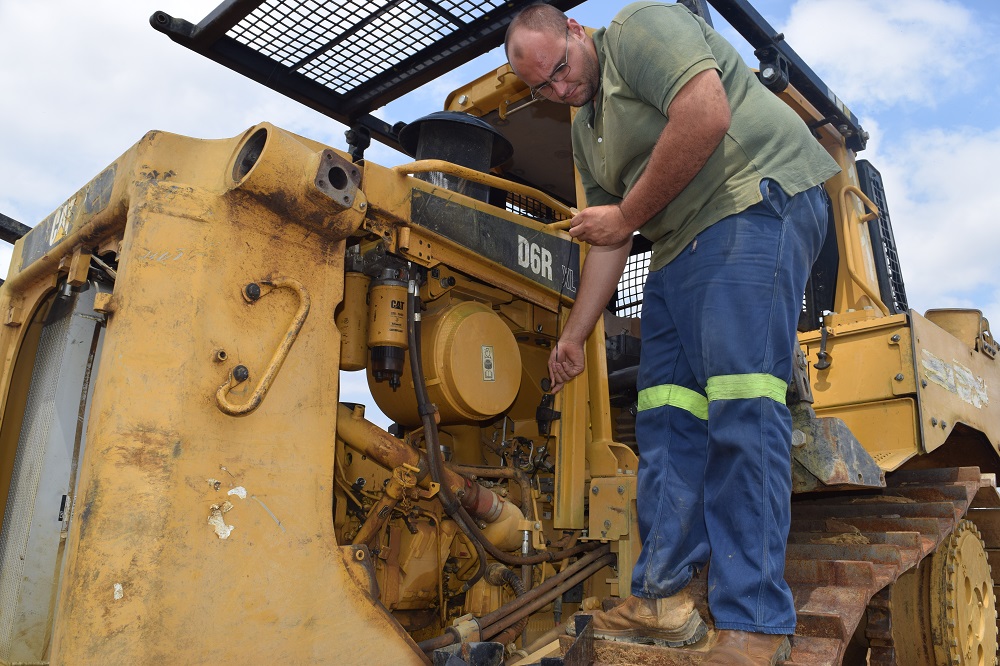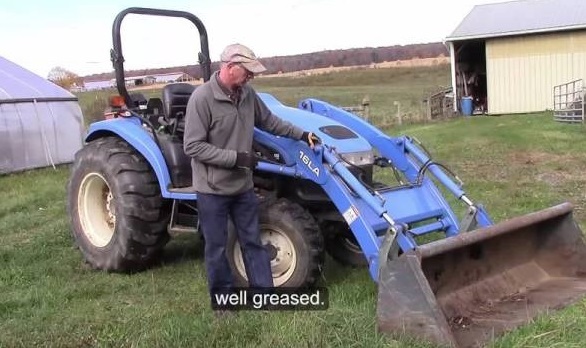Preventative Maintenance Spells Profit for Ag Machinery Owners
Farmers are skilled across many areas of business management; perhaps more so than just about any sector of an economy. They manage people, finances, animals, land, the environment, and equipment. As more agricultural machinery makes its way to developing countries around the world, it has become increasingly important to have an equally preventative maintenance, effective service and parts network follow it. Over the past few decades, millions of dollars worth of equipment has made its way to fields and died there because of the lack of knowledge and infrastructure to support it.
In studies conducted by the Virginia Cooperative Extension Service, focused on Midwestern US farms, it was shown that farmers reduced their total repair bills by some 25% if they kept their tractors and implements well maintained.
The University of Nebraska (home of the Nebraska Tractor Test) found similar results and cited a specific example in the process. They concluded that an $80,000 tractor, over the course of its first 5,000 hours of operation, would normally require approximately $24,000 in repairs and maintenance costs. When the farmer rigorously maintained his equipment and incorporated a regular service maintenance plan, this cost was reduced to $18,000; a savings of $6,000 or 25%.
To accomplish these results efficiently, two approaches are imperative:
- An informed farmer who is involved in the maintenance of this equipment on a regular schedule, AND
- An accessible professional source for outsourced equipment maintenance procedures that require specialized skills
Every tractor is different…every piece of equipment is different as well. Universal to both, however, is that their service and maintenance is crucial to their ability to earn their ‘keep’ on your farm and return profits.
Keep it Clean, Dry, and Lubricated – these three goals will extend the life of your equipment more than just about any other considerations. It takes time, discipline, and dedication to accomplish this. Some larger farms employ a shop employee full time to make sure these three activities are paramount. The time spent to grease; check fluids levels and condition; wash and clean your equipment, and store it out of the weather pays you back many fold.
Keep Good Records – Record keeping is one of the most important ways to assure things are in order with your equipment maintenance. The records kept will allow you to adhere to the service intervals recommended by the manufacturer and reduce wear on your parts, engine, drivetrain, and other components. Some examples include:
- Proper maintenance documents that record regular servicing as well as unexpected incidents where failure occurred
- Service record charts that show at a glance when servicing is due
- Using a notebook in each piece of equipment to record issues as they happen and not be forgotten or overlooked
- Following the preventive maintenance procedures in the equipment operator guide
- Placing a large planning calendar or whiteboard in a shop that lays out maintenance highlights and critical time points
- Easy-to-find contact names and numbers for outsourced assistance
Get to Know Your Equipment – a good farmer actually develops a relationship with his equipment.. they know their tendencies, sounds, and ‘feel’ when something is wrong. Pay attention to your tractor, and like your favorite pet, it will pay you back. Here are some pointers to that end:
- Routine exterior physical inspections – walk around the equipment before using it and examine all the critical and not-so-critical areas…drive train, tires, universal joints, etc.
- Periodic internal inspections – open the hood, examine the internal components where you can access them…
- Perform Fluid and Oil changes at precise Putting it off only leads to bad habits that cost you money
- Systematic lubrications – this is perhaps the worst one to discipline yourself towards. Grease fittings can be hidden in the most inconvenient locations, but it’s worth your while to get to them. If the zerk fitting is broken, tap it out and replace it…if it’s not accepting grease, free up the ball valve or replace the fitting. There’s a certain reward in hearing your U-joint sigh in relief as you pump fresh grease into it.
- Watching for irregularities in fluids – color, presence of water, particulates, and other small anomalies in fluids can spell trouble…report your findings to your professional and heed their advice.
- Prompt adjustment or replacement of defective components – this is huge… failing to replace something small can lead to having to replace something big…and of course, it will happen when you least want it to..while the equipment is working in the field.
- Maintaining adequate parts inventory – replacement blades, filters, nuts and bolts all lead to better equipment maintenance and happier equipment. Not to mention saving downtime while waiting to schedule a repair or waiting for a part to arrive.
- Adherence to manufacturer’s operation and maintenance guide. Keep your manuals in a dry and cool location so when you need it, it will be there…the time it takes to return it versus leaving it in the tractor or out on the shop floor will pay you back when you really need it in the future. Read your manual cover to cover when you first get your equipment..you’ll be surprised how it will come to mind when you need it to.
- Scheduling overhauls of major components – example: when it’s clear that your clutch is going to need replacement, talk to your service provider so the parts can be scheduled in and be done as quickly as possible. There are many similar examples..if you’ve gotten to ‘know’ your equipment, you’ll know when something is nearing the end of its life.
- Being vigilant for fatigue, stress, and corrosion on your equipment
In closing, be aware of your limitations and ability to accomplish all these steps. Be honest with yourself, and if you don’t have the resources or knowledge to complete them, talk to your service representative and delegate them accordingly. Paying a professional company to stop by once a week to clean and lubricate your equipment, for example, will return many fold over time and keep your tractors and equipment working hard for you year round.
Read more about it:
Sources used in this article with more information include:
Keep your Fleet Running Stronger for Longer – Carolina Caterpillar
Winter Farm Equipment Maintenance – Southern States Cooperative
Improving routine maintenance procedures can reduce repairs – Southwest Press
5 Ways to Make Your Farm Machinery Bring Top Dollar – ‘Dream Dirt’






